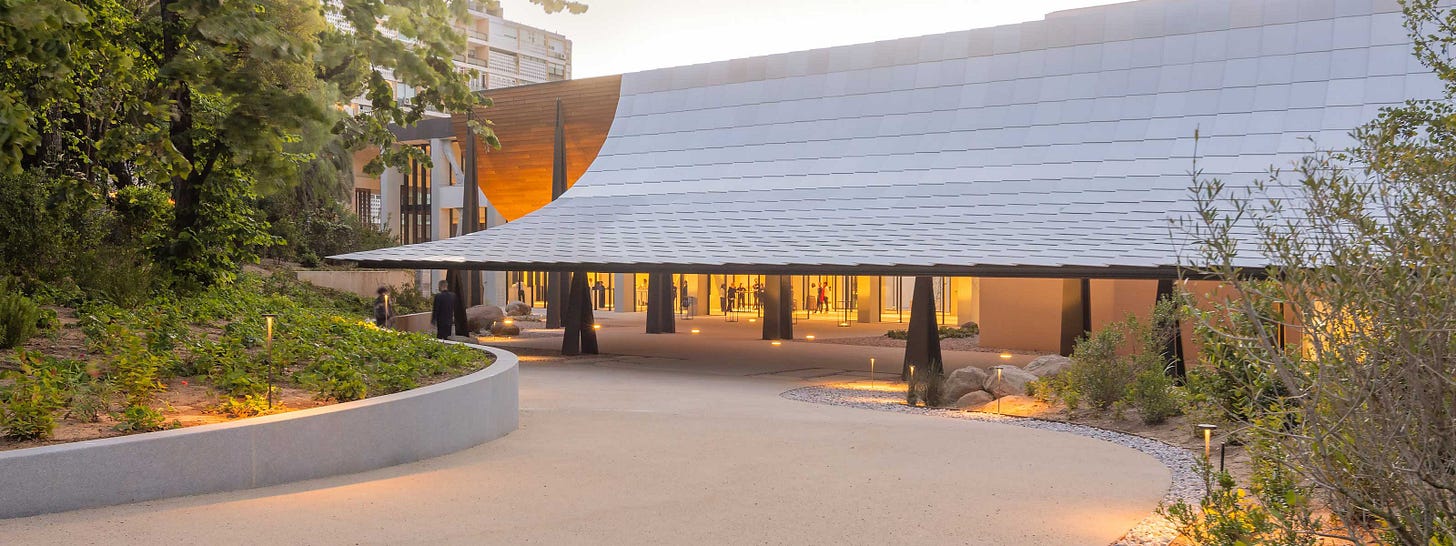The new Gulbenkian Modern Art Centre opens
To mark the occasion, the Centre will host a two-day party open to the public for free.

What?
After four years of extensive remodelling under the wise guidance of Japanese architect Kengo Kuma, the Gulbenkian Foundation’s Center for the Modern Arts finally reopens today with an official ceremony followed by a weekend full of free activities.
For pictures of the project visit designboom.
Tell me more
The building has been transformed by Japanese architect Kengo Kuma, who’s known for his use of natural materials. It’s inspired by the concept of ‘engawa’, which means a ‘space of interaction between inside and outside’.
It will house the Calouste Gulbenkian Foundation’s stunning collection of modern and contemporary Portuguese art, as well as works by international artists (of which there are almost 12,000 pieces in total). The new CAM will have an entrance on Rua Marquês da Fronteira and there’ll be a brand new gallery to house exhibitions from the permanent collection. The drawing room (next door) will be used for paper-based artwork.
Surrounding the museum is a public garden, redesigned by landscaper Vladimir Djurovic, who’s previously designed the gardens of the Aga Khan Park. The site was expanded by two hectares, and that includes a new building which has a roof made of white ceramic tiles.
What’s happening?
On Saturday, Benjamin Weil and Kengo Kuma will be in conversation to unpack the notion of Engawa that identifies CAM, and a newly commissioned performance by Jota Mombaça, in the context of Leonor Antunes’s exhibition, finds inspiration in the running water of the garden, continuing their research into the radical performances of ‘sinking’. Look out for the temporary “art tattoos” designed by Wasted Rita.
The opening party is organized in collaboration with Filho Único – a Lisbon-based collective recognised as catalysts for the city’s most authentic dance scene. The night is conceived as a journey in three acts: from Nala Sinephro’s mystical jazz to Nidia’s electronic beats rooted in Lusophone Africa and Lisbon’s suburbs, and Tim Reaper’s futuristic jungle music.
Sunday is all about the Japanese Season, with a talk delving into the work of Fernando Lemos, featuring the legendary anthropologist Ryuta Imafuku, as well as a live collaboration between poet Ryoko Sekiguchi and sound composer and DJ Samon Takahashi.
The weekend ends with the sounds of the electronic music pioneer Éliane Radigue. We present her OCCAM OCEAN series, fascinating instrumental pieces, in the context of Leonor Antunes’s exhibition.
Find out more about the event here.



